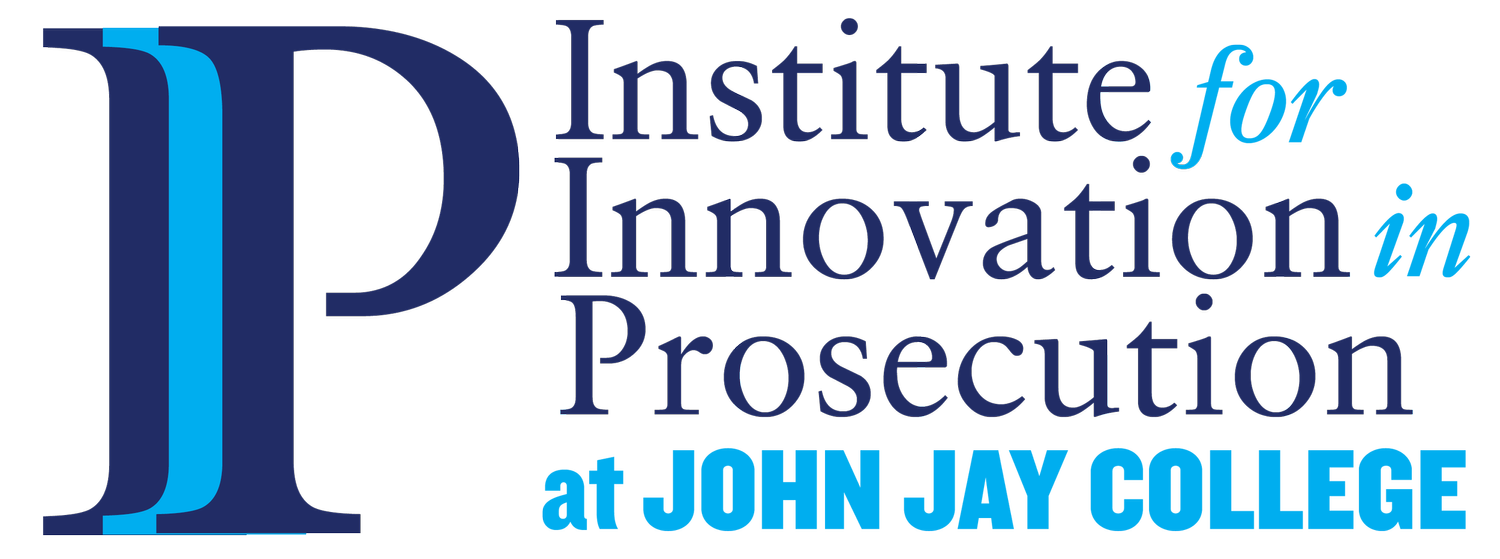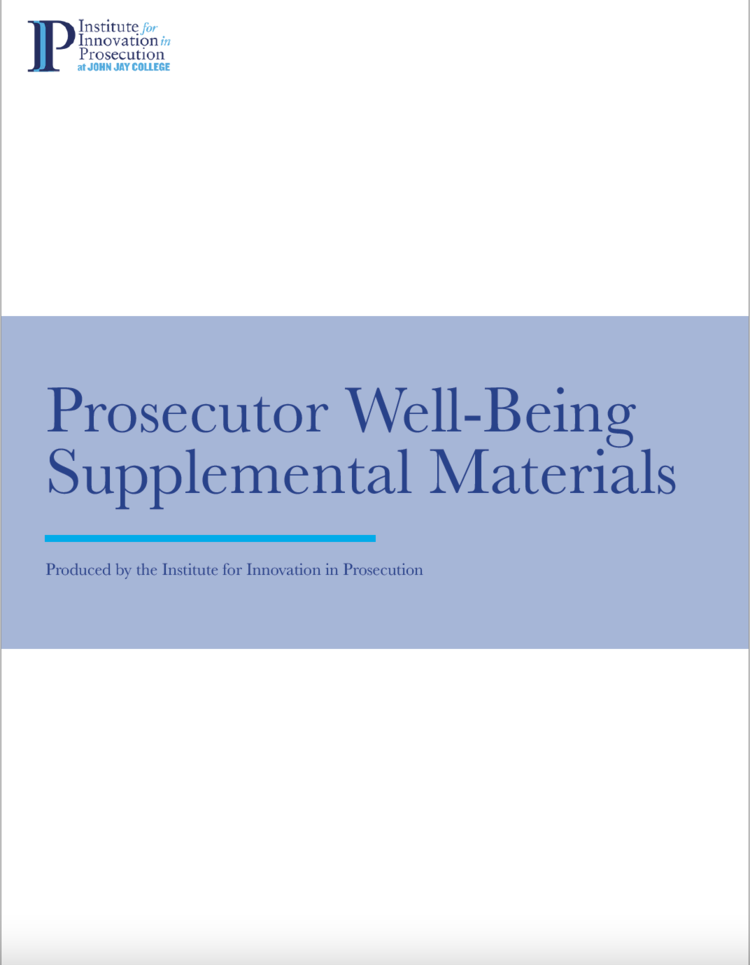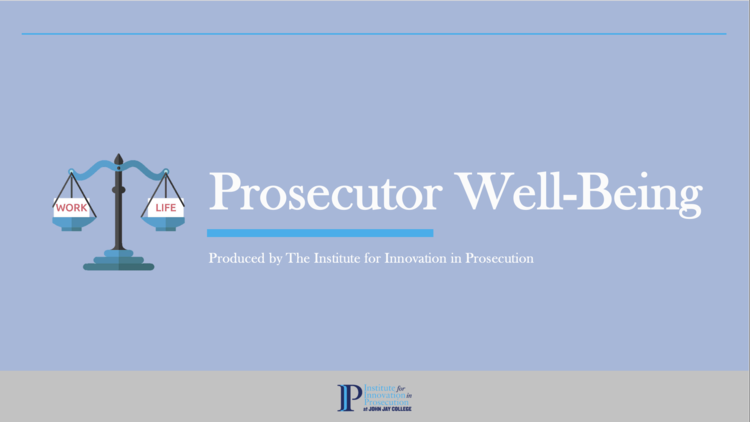PROSECUTOR WELL-BEING
Building on the IIP’s Trauma-Informed Prosecution Training, the IIP’s Prosecutor Well-being Initiative explores how prosecutors can mitigate the considerable vicarious trauma and stress that accompanies their jobs, and partake in wellness practices to improve the way they approach their cases.
A prosecutor’s job can take a toll on their mental and physical health. Prosecutors handle heavy caseloads, manage difficult and traumatic cases, and are charged with life-altering decisions. Investing in prosecutor wellness is an essential part of maintaining a healthy and effective criminal legal system.
Prosecutor Well-Being Training Information Session
In order to provide more information on the newly launched Prosecutor Well-Being Initiative and how it is done, IIP partners and co-creators Rena Paul, Esq. and Alison Trenk, MA LCSW lead a demonstration and information session.
This training seeks to expand the concept of “well-being” beyond the sphere of personal responsibility to that of professional diligence.
Objectives of the Presentation:
Suggest that tending to prosecutor well-being is the most accessible criminal justice reform that you can individually implement today
Define “well-being” as it relates to prosecutors
Discuss the connection between well-being and ethics for prosecutors
Demonstrate that attention to prosecutor well-being is critical to support fair case adjudication and reduce attrition
Identify the signs and consequences of not investing in well-being
Define six areas of well-being and provide practical guidance to support them
This presentation was created in partnership with Alison Trenk, MA LCSW and Rena Paul, Esq (rena@alcalaw.com).
To inquire about having the IIP’s Prosecutor Well-Being training held at your office, or to discuss specific ways your office can implement the principles behind this initiative, email the IIP: iip_johnjay@prosecution.org.
Disclaimer:
This presentation is intended to educate prosecutors on some of the best practices in well-being and discuss physical and mental health. Though this presentation was made in consultation with a mental health expert, it should not be used as a tool for self-diagnosis. Always seek the advice of your physician or other qualified health providers with any questions you may have regarding a medical condition.
The Implementation Guide
This is an implementation guide for prosecutors’ offices seeking to enhance the well-being of their employees. The guide details a series of recommendations and considerations for creating a culture change in their offices that dovetails with an evolution in criminal justice reform.
Book Recommendations
The Age of Overwhelm and Trauma Stewardship by Laura van Dernoot Lipsky
Reducing Compassion Fatigue, Secondary Traumatic Stress, and Burnout; A Trauma-Sensitive Workbook by William Steele
Burnout by Emily Nagoski and Amelia Nagoski
Additional Resources
American Bar Association’s Lawyer Assistance Program Directory can help you find a lawyer assistance program in your jurisdiction.
“Lawyer Assistance Programs provide confidential services and support to judges, lawyers, and law students who are facing substance use disorders or mental health issues. If you or someone you know is in need of assistance, contact your state or local LAP.”
American Bar Association’s Mental Health Resources
Institute for Lawyer Well-being: The Institute for Well-Being in Law is a 501(c)(3) non-profit that evolved from the National Task Force on Lawyer Well-Being.
The Path to Lawyer Well-Being report includes 44 recommendations for improving the legal profession’s culture and supporting lawyers’ full well-being. Because an absence of illness is not the same thing as being fully well, the report focuses on promoting health and happiness as well as preventing and treating impairment. You’ll find general recommendations that apply across the profession as well as sections tailored to specific institutional stakeholders.




